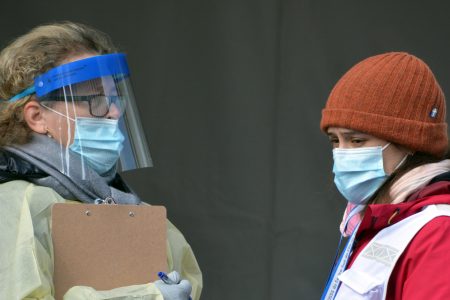Investments contained in the American Rescue Plan Act of 2021, which recently passed the House, will help to heal our country in the wake of the COVID-19 pandemic.
The Kennedy Forum and other advocates are grateful for the $4 billion in additional funding for the Substance Abuse and Mental Health Services Administration (SAMHSA) and the Health Resources and Services Administration (HRSA), as well as the landmark Medicaid investments in mobile crisis response. Combined with the Consolidated Appropriations Act, 2021’s significant emergency funding, we are witnessing a historic commitment to addressing surging mental health and addiction needs.
But with a few additional steps, we can go even further to ensure behavioral health is prioritized alongside physical health during this time of crisis—and set a powerful new precent to guide public health for years to come.
For far too long, those with behavioral health challenges have been relegated to a separate and unequal system of care. And as history demonstrates, wherever discrimination and segregation have been endemic, structural reforms to undo their harmful effects are essential. Fortunately, the American Rescue Plan offers a common-sense way to do this: the expansion of our nation’s public health workforce.
The Plan authorizes $7.6 billion in additional funds to hire 100,000 new public health workers, with specifications for ‘permitted uses.’ Unfortunately, it contains no references to behavioral health. While behavioral health is admittedly not excluded from the uses, without the specific inclusion, decades of experience tell us that it will very likely be left behind.
With the Senate sure to make technical amendments to the American Rescue Plan Act, it should take the small, but major step forward toward integrating physical and behavioral health by ensuring that behavioral health is explicitly mentioned in the public health workforce provisions.
Upon anticipated enactment of the American Rescue Plan Act, it will also be critical for the Department of Health and Human Services to ensure this workforce is charged with addressing the long-term crises of mental health and substance use that will likely far outlast the pandemic—and that they are properly trained.
Increases in anxiety, depression, and substance use will not simply recede with a reduction in COVID cases and deaths. Each month of the pandemic, anxiety and depression have risen among all age groups, with a staggering 53 percent of young adults ages 18-29 reporting symptoms of depression or anxiety last month. Overdose deaths skyrocketed at the beginning of the pandemic – with more than 81,000 fatal overdoses between June 2019 and June 2020 alone (reflecting only the first few months of the pandemic).
Americans newly dependent or addicted to drugs or alcohol—due to self-medicating throughout the pandemic—won’t necessarily be able to temper substance use when life returns to normal. The 100,000 new public health workers funded by the American Rescue Plan can assist in addressing these behavioral health needs, but only if behavioral health is incorporated into the workforce’s duties and training.
We can’t let this chance to implement practical—and potentially lifesaving—measures pass us by. The pandemic has finally opened Americans’ eyes to the fact that there is no health without mental health. Our government must now seize this opportunity to create a new path forward—one that treats the brain on par with the body and safeguards total health.


